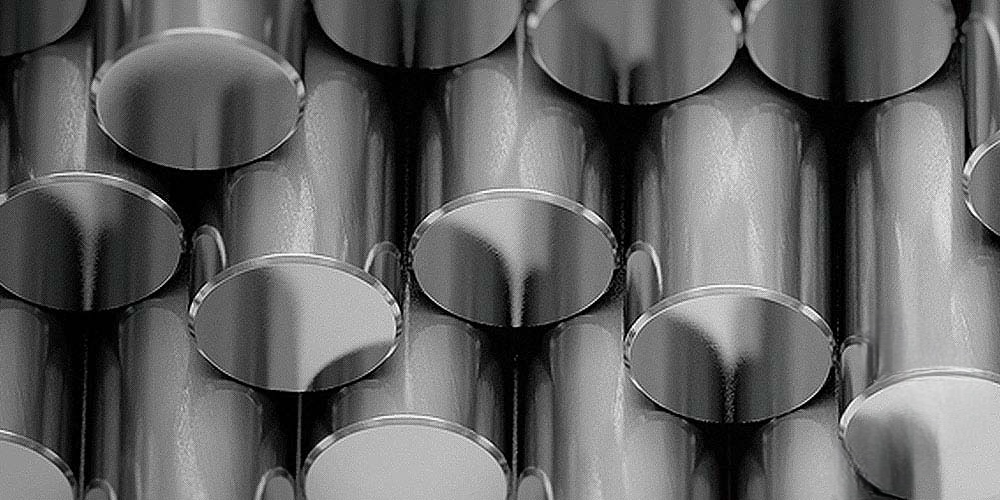
Alloy 36, also known as Invar 36, is a nickel-iron alloy distinguished by its exceptionally low coefficient of thermal expansion. This characteristic makes it an invaluable material for applications where maintaining precise dimensions across varying temperatures is crucial. Alloy 36 is recognized under various designations and standards, including NILO 36, UNS K93600, DIN 1.3912, FE-NI36, 36N, and W.NR. 1.3912. These designations highlight its international recognition and adherence to different industry standards.
Alloy 36's composition primarily consists of approximately 36% nickel and the remainder iron, which together produce its unique property of minimal thermal expansion. This makes Alloy 36 highly effective in applications that require tight dimensional tolerances and stability under thermal stress.
Alloy 36 Plate | Sheet
Alloy 36 plates and sheets come in a variety of thicknesses and sizes, designed for applications requiring high dimensional stability and flatness. These forms are essential for precision machining and structural components where even minor dimensional deviations can impact performance. The plates and sheets are commonly used in high-precision environments such as scientific instruments, aerospace parts, and structural supports.
Alloy 36 Round Bar | Rod
Available in different diameters and lengths, Alloy 36 round bars and rods are ideal for applications where components need to be machined into specific shapes. They are crucial for producing parts like shafts, spindles, and fittings that must maintain their dimensional accuracy despite temperature fluctuations. The round bars and rods are often used in high-precision engineering tasks where the alloy’s low thermal expansion contributes to maintaining tight tolerances.
Alloy 36 Strip | Coil
Alloy 36 strips and coils are provided in thin, flexible sections that are used in applications requiring continuous material or parts that need to be bent or formed. These forms are widely used in the production of precision springs, washers, and other components where flexibility and low thermal expansion are critical. Their versatility is beneficial for various applications in electronics, automotive, and aerospace industries.
Alloy 36 Applications
- Metal-to-glass seals for electronic tubes and hermetic devices.
Alloy 36 Properties
- Coefficient of Thermal Expansion: Approximately 1.0 x 10-6 /°C, which is exceptionally low compared to most other metals. This property makes Alloy 36 particularly suited for precision applications requiring minimal thermal expansion.
- Density: About 8.0 g/cm³, providing a balance of weight and strength for various applications.
- Thermal Conductivity: Approximately 10-12 W/m·K, offering moderate thermal conductivity while maintaining stability.
- Magnetic Properties: Generally ferromagnetic, which can be advantageous or disadvantageous depending on the application. The magnetic properties are considered in applications where magnetic stability or isolation is required.
- Mechanical Properties: Alloy 36 offers good mechanical strength and ductility, designed primarily for its dimensional stability rather than high strength.
Machining Alloy 36
- Cutting: Alloy 36 can be machined using conventional cutting tools. Sharp tools and appropriate cutting speeds and feeds are essential to avoid tool wear and achieve clean cuts.
- Drilling: Drilling Alloy 36 is straightforward with high-speed steel (HSS) drills or carbide-tipped bits. Proper lubrication and cooling help maintain drill life and ensure clean holes.
- Turning: Carbide inserts are recommended for turning Alloy 36. Maintaining a steady feed rate and managing heat buildup is crucial to preserving dimensional accuracy.
- Milling: Conventional milling techniques are effective for Alloy 36. Carbide end mills and cooling fluids help manage heat and prevent dimensional changes during milling.
- Grinding: Grinding Alloy 36 can achieve tight tolerances and fine finishes. Using appropriate abrasive wheels and coolant helps achieve the desired surface finish while maintaining dimensional stability.
Chemical Composition
- Carbon (C): Max 0.10%
- Manganese (Mn): Max 0.06%
- Silicon (Si): Max 0.35%
- Phosphorus (P): Max 0.02%
- Sulfur (S): Max 0.025%
- Nickel (Ni): Min 35%, Max 38%
- Chromium (Cr): Max 0.50%
- Molybdenum (Mo): Max 0.50%
- Cobalt (Co): Max 1.0%
- Iron (Fe): Balance
| Material | Form | Size Inches | SKU Number |
|---|---|---|---|
| ALLOY 36 | Sheet | Thickness: 0.010" to 0.500"; custom widths and lengths | INVAR36-SHEET-0.125-12x12 |
| ALLOY 36 | Plate | Thickness: 0.500" and up; custom sizes | INVAR36-PLATE-0.750-24x24 |
| ALLOY 36 | Bar/Rod | Diameter: 0.250" to several inches; length up to 36" or more | INVAR36-BAR-1-36 |
| ALLOY 36 | Tube/Pipe | Diameter: 0.5" to several inches; custom wall thickness | INVAR36-TUBE-1-0.125 |
| ALLOY 36 | Wire | Diameter: 0.010" to 0.250"; often supplied in coils | INVAR36-WIRE-0.050-100 |
| ALLOY 36 | Custom Fabrications | Custom dimensions and shapes as required | INVAR36-CUSTOM-FAB-001 |
